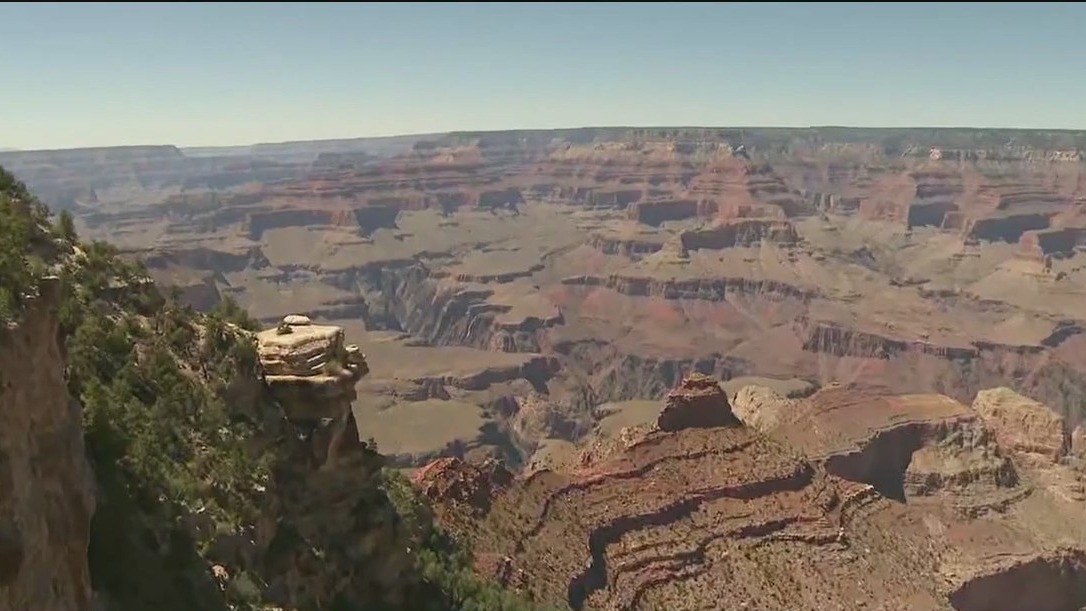Politics
Arizona Congressman Proposes Bill to Open National Monuments

Arizona Congressman Paul Gosar has reintroduced two bills aimed at removing environmental protections from vast areas of federal land. The proposed legislation seeks to open portions of the Grand Canyon National Monument and the Ironwood Forest National Monument to mining and energy development, a move that has generated significant concern among environmental advocates.
The bills would affect millions of acres of protected land, allowing for potential copper and gold mining operations. Supporters of the legislation argue that it could boost local economies by creating jobs and increasing access to natural resources. However, critics warn that such actions could lead to irreversible damage to these iconic landscapes and disrupt the ecosystems they support.
Details of the Proposed Legislation
The bills would specifically target areas within the Grand Canyon National Monument and the Ironwood Forest National Monument, regions known for their rich biodiversity and cultural significance. By lifting the current protections, the legislation would facilitate exploration and extraction activities that have been prohibited under existing federal regulations.
Gosar has emphasized the importance of resource development, asserting that the nation must utilize its natural resources to fuel economic growth. “We must prioritize the needs of our communities and ensure that we are not overly restricting our ability to harness what is rightfully ours,” he stated during a recent press conference.
Conversely, environmental groups have expressed strong opposition to the bills. They argue that mining activities in these areas could lead to habitat destruction, water contamination, and a loss of biodiversity. The Grand Canyon, a UNESCO World Heritage Site, is particularly vulnerable, as its delicate ecosystems rely on the preservation of its natural environment.
Potential Impacts on Local Communities
Local communities have mixed feelings about the proposed legislation. Some residents, particularly those involved in mining, support the bill as a means to revitalize the local economy and create jobs. Others, especially indigenous groups and environmental activists, warn that the long-term consequences of such development could outweigh any short-term benefits.
According to a report by the National Parks Conservation Association, mining in these protected areas could threaten the water supply for nearby communities, potentially impacting thousands of residents. The organization has called on Congress to preserve the integrity of these monuments and uphold the environmental safeguards currently in place.
As the bills progress through Congress, they are expected to face significant scrutiny and debate. Environmental advocates are mobilizing to ensure that the voices of affected communities are heard, while supporters of the legislation argue for the economic advantages it could present.
The future of Arizona’s national monuments hangs in the balance as this legislative effort unfolds. The implications of these bills extend beyond state lines, raising questions about the national approach to environmental protection and resource management in an era of increasing demand for energy and minerals.
-

 Lifestyle4 months ago
Lifestyle4 months agoLibraries Challenge Rising E-Book Costs Amid Growing Demand
-

 Sports3 months ago
Sports3 months agoTyreek Hill Responds to Tua Tagovailoa’s Comments on Team Dynamics
-

 Sports3 months ago
Sports3 months agoLiverpool Secures Agreement to Sign Young Striker Will Wright
-

 Lifestyle3 months ago
Lifestyle3 months agoSave Your Split Tomatoes: Expert Tips for Gardeners
-

 Lifestyle3 months ago
Lifestyle3 months agoPrincess Beatrice’s Daughter Athena Joins Siblings at London Parade
-

 World3 months ago
World3 months agoWinter Storms Lash New South Wales with Snow, Flood Risks
-

 Science4 months ago
Science4 months agoTrump Administration Moves to Repeal Key Climate Regulation
-

 Science3 months ago
Science3 months agoSan Francisco Hosts Unique Contest to Identify “Performative Males”
-

 Business4 months ago
Business4 months agoSoFi Technologies Shares Slip 2% Following Insider Stock Sale
-

 Science4 months ago
Science4 months agoNew Tool Reveals Link Between Horse Coat Condition and Parasites
-

 Sports4 months ago
Sports4 months agoElon Musk Sculpture Travels From Utah to Yosemite National Park
-

 Science4 months ago
Science4 months agoNew Study Confirms Humans Transported Stonehenge Bluestones









